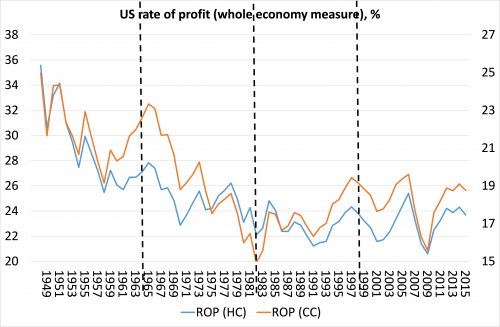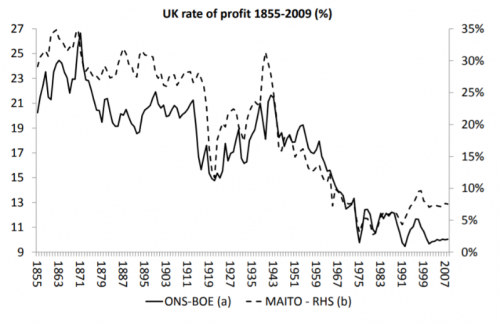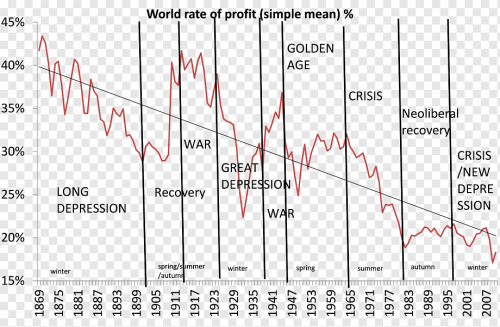Why capitalism has doomed us all to more and more war
As this video shows, wars are extremely profitable.
As anyone who has ever read Smedley Butler, or knows anything about the Banana Wars, the quest for corporate profits leads directly to wars. Especially during times of extreme inequality, such as the Gilded Age. Or right now.
That got me thinking about capitalism's greatest paradox - The Tendency Of The Rate Of Profit to Fall.
The TRTF is not just some Marxist theory. It was described by such capitalist economists as Adam Smith, David Ricardo, and John Stuart Mills. However, it required Karl Marx to explain why the TRTF existed.





The TRTF is a fact. What I find scary is that capitalism constantly requires new market. in th 1950's and 1960's that meant the 3rd world. By the 1970's capitalism began entering a crisis.
In the 1990's the fall of communism opened up huge new markets for exploitation. But now even China has begun seeing it's internal profit rate to fall.
So if there are no more significant new markets, and profits continue to fall, what can the capitalists do? Why start some wars, of course.


Comments
Here's how they do it:
1) In any protracted war you're going to see the idea floated among the rest of the world -- which cannot see indefinite war improving their aggregate financial statuses -- that maybe the two sides ought to agree to peace. What you do then is to argue that the point of war is to weaken the other side. And this is precisely what the Biden appointees have done. It appears to still be their collective goal.
2) I think it's in Keegan's The First World War that Woodrow Wilson sent delegations to France and to Germany -- late in the war -- to ask each side how they saw the war ending. What he discovered was that both sides had such unrealistic notions of what was to happen that the war appeared to be of indefinite duration. The war in fact ended when Wilson sent American troops to France to fight on the French side, and when the German Navy mutinied.
3) As regards the finance part of it, I remember reading somewhere -- maybe in the works of Kees van der Pijl -- that the boom-bust cycle was actually profitable to the European powers. And, when the boom-bust cycle turned out no longer to be profitable, the military became the big fashion in investment, and soon thereafter World War I broke out. Something, after all, had to be done with all of those well-financed militaries so as to recoup the money spent on them. As for World War II, apparently Hitler had made a number of borrowings so as to finance his extremely large military. Hitler had, initially, planned to declare war on most of Europe in 1942. But I gather that at some point in 1939 Hitler had a panic attack about being so far in debt. So war in 1939 it was.
4) The economics of the Ukraine proxy war appears to have gone rather south, rather quickly. This is due to unrealistic expectations by the West, which imagined that it could ship its expensive weapons to the Ukraine and thereafter the Russians would promptly surrender.
"It hasn't been okay to be smart in the United States for centuries" -- Frank Zappa
Well that's interesting...
...but so what now?
What next?
I'm not interested in being "doomed".
In the Land of the Blind, the One-Eyed Man is declared mentally ill for describing colors.
Yes Virginia, there is a Global Banking Conspiracy!